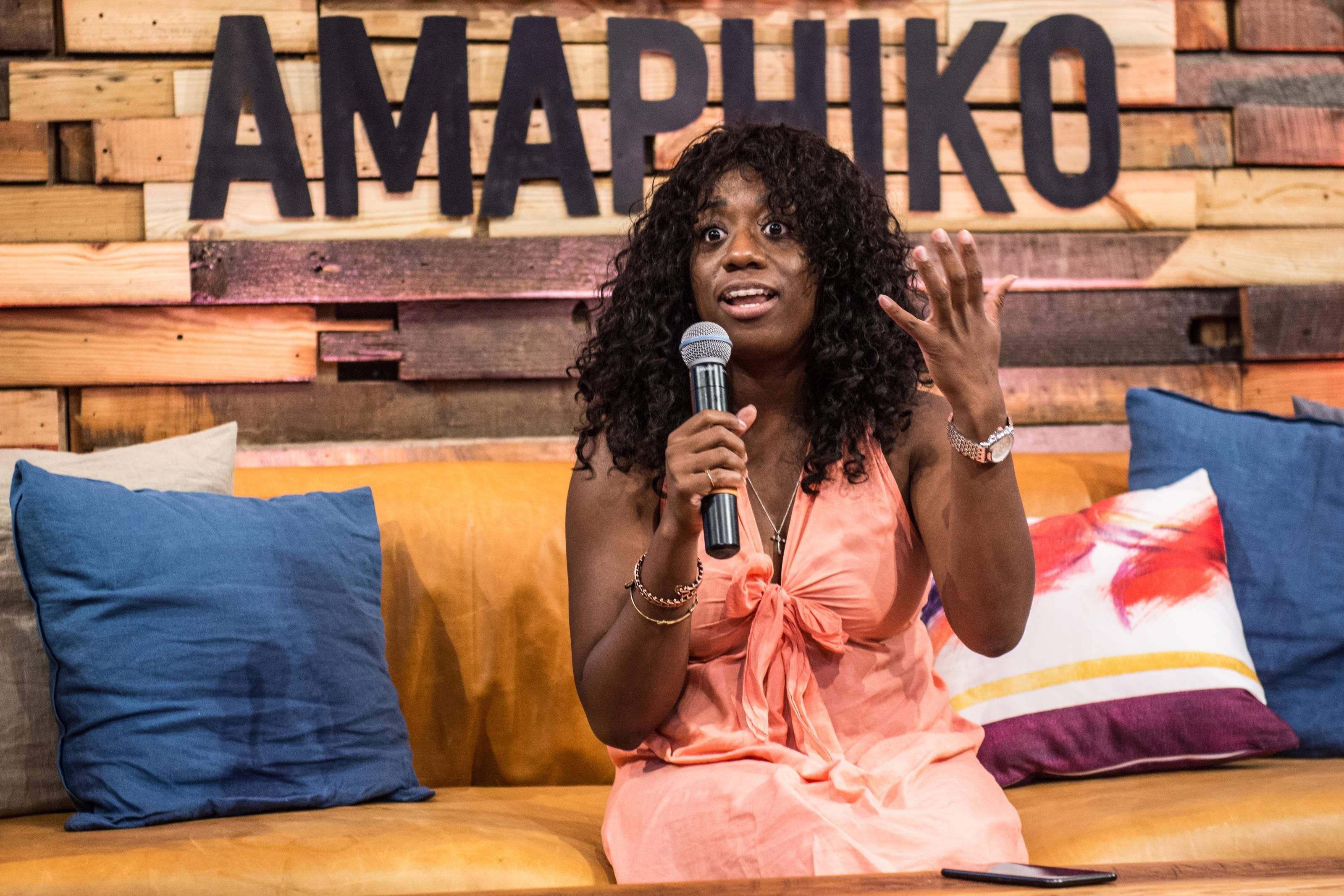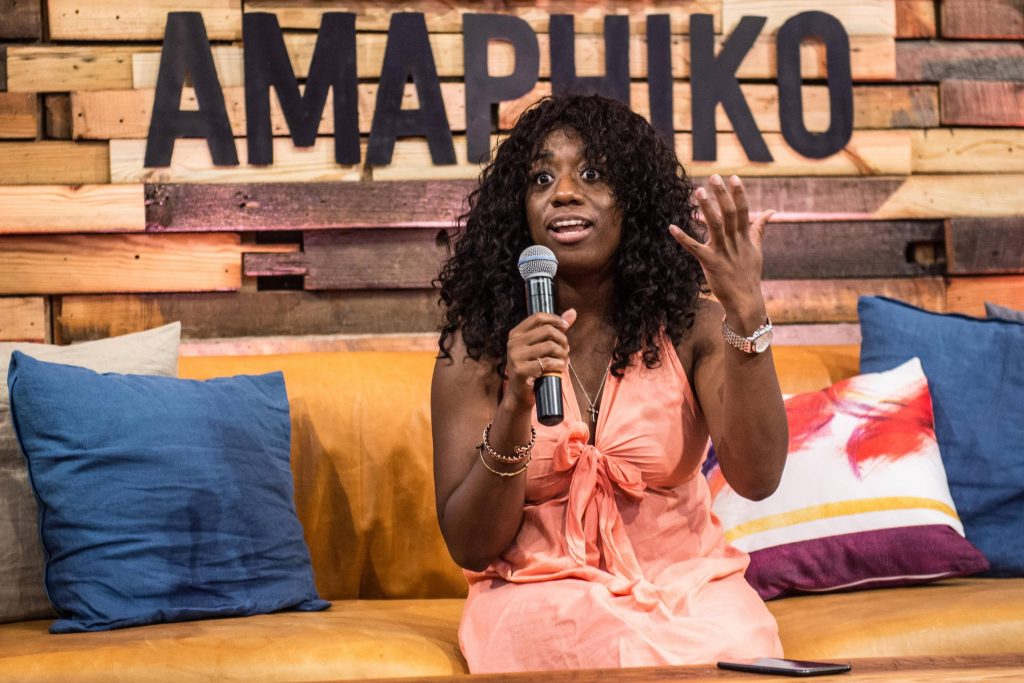As the founder and executive director of Just Speak, Brittni Kellom creates support systems for victims of sexual assault and child abuse — a cause that’s deeply close to her heart. She founded the organization at the age of 17, after coming to terms with the assault and abuse she had suffered under her biological father. Fifteen years later, she’s building upon that mission to get the best care to children around the country.

Despite her passion, Kellom — like many new entrepreneurs — needed help solidifying the structure of her organization, so she applied and was accepted to Red Bull Amaphiko, a program for social entrepreneurs. There, she’s gained the guidance of Gayle Northrop, president of Northrop Nonprofit Consulting, which specializes in the development of socially driven enterprises. Here, the women talk about building businesses that really mean something, knowing your strengths and weaknesses and acting deliberately.
Women Entrepreneur: Brittni, tell me a bit about your organization — I understand it’s a deeply personal mission.
Brittni Kellom: Just Speak is a trauma-informed advocacy group that serves kids ages three to 17 by partnering with educational systems and non-traditional partners to give students an outlet that will help them lead a healthy life. I started it because I’m a survivor of incest with my biological father. When I was trying to navigate school myself, it was clear that there needed to be some kind of filler between the work that students are expected to do and perform and what they need as personal support.
WE: That’s a big mission. How did you get connected with Gayle?
Brittni Kellom: I applied for the Red Bull Academy last summer as a way to strengthen my leadership skills and build my business and really form a personalized approach to some goals. I went through a rigorous interview process, was accepted and we spent 11 days in Baltimore meeting with other fellows and advisors. Very organically I was paired with Gayle, who I sometimes call Mama Gayle. She’s just like my adult spirit animal. She’s got so much wisdom and experience that I need, in business and just personally.
Gayle Northrop: The amazing beauty of social entrepreneurs is the fact that they’re solving problems close to their hearts — at least the most effective ones are. Working with Brittni is a reminder that this isn’t a job, it’s a calling and a passion, something she wants and needs to do. It’s my privilege to walk beside her as she’s doing it and give her guidance and perspective.
WE: Brittni, because your work is so close to your heart, does it make it tough to let someone in and have influence on what you’re building?
BK: No! It’s just very cool to find someone who’s open to what I’m doing and talking about. More people need to hear it. Mental health is just not talked about, and trauma fits into that. My first interview with Red Bull, that was something that I was asked about: Am I going to continue being comfortable telling my own story? And I’m not at all nervous about sharing. I started this in 2003, just telling my story as a survivor, and as I got more experience and studied psychology and became a certified trauma practitioner, I was able to evolve the program. But I will never stop telling my story, because it is important.
WE: You’re halfway through the Red Bull program. How has the relationship with Gayle developed so far?
BK: We talk every couple of weeks, as a formal part of the program, but Gayle is always available to me by text or email, even though she’s got a schedule. I feel like I have her as much as I want. She’s been extremely instrumental in understanding where I want to take the organization, and understanding that while it’s an awesome idea, it’s still a startup. I need help building the actual bones.
WE: What happens with you two when the program ends?
GN: It’s nine more months with the academy, and it’s a lifetime for our relationship.
BK: It better be!
GN: This is a pretty special thing. I look at that nine months as, How can we leverage the structure of the academy? But Brittni and I — on a personal and professional level — will stay connected.
BK: When I build a connection, I cling to it. And through this program, I’m very much aware that I can seek the support of other coaches based on their skill set. Even if it’s not directly related to what I’m doing, I can use that expertise.
GN: The coaches connect regularly to talk about the challenges and successes, what’s working well, what resources we all have. The four coaches have very different backgrounds and networks, so we can connect to make sure the social entrepreneurs we’re working with can leverage all of our networks a little more broadly. I never had a formal mentor or coach, and female mentors and role models were even more rare. And I wonder what additional influence people might have had on my life if they had been more deliberate about their role in it. So now, I’m being deliberate about my position and opportunity, and it’s led me to be a part of this.
BK: One of my closest friends is a fellow fellow, if you will. And she’s a woman and has her own initiative and I’ve been extremely inspired by that. And I met another woman on our retreat who’s really good at digital marketing and storytelling. So I can access her and learn from her. I’m still very careful about babying the structure of my organization as I build those relationships and explore where to go next. Whether that’s a network driven by women or things specific to my cause, it’s all about being better connected to communities.

